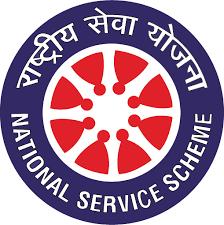- 9:30am - 6:30pm, Mon - Sun
- 1800 31300 1566
- Sanjay Ghodawat University,Atigre 416 118,Kolhapur


The symbol for the NSS has been based on the giant Rath Wheel of the world-famous Konark Sun Temple (The Black Pagoda) situated in Odisha, India. The wheel portrays the cycle of creation, preservation, and release. It signifies the movement in life across time and space, the symbol thus stands for continuity as well as change and implies the continuous striving of NSS for social change. The eight bars in the wheel represents 24 hours of a day. The red colour indicates that the volunteer is full of young blood that is lively, active, energetic, and full of high spirit. The navy-blue colour indicates the cosmos of which the NSS is tiny part, ready to contribute its share for the welfare of the mankind.
The National Service Scheme (NSS) is an Indian government sector public service program conducted by the Ministry of Youth Affairs and Sports of the Government of India. Popularly known as NSS, the scheme was launched in Gandhiji's Centenary year in 1969. Aimed at developing student's personality through community service, NSS is a voluntary association of young people in Colleges, Universities and at +2 level working for a campus-community (esp. Villages) linkage.
The programme aims to instilling the idea of social welfare in students, and to provide service to society without bias. NSS volunteers work to ensure that everyone who is needy gets help to enhance their standard of living and lead a life of dignity. In doing so, volunteers learn from people in villages how to lead a good life despite a scarcity of resources. It also provides help in natural and man-made disasters by providing food, clothing and first aid to the disaster's victims.